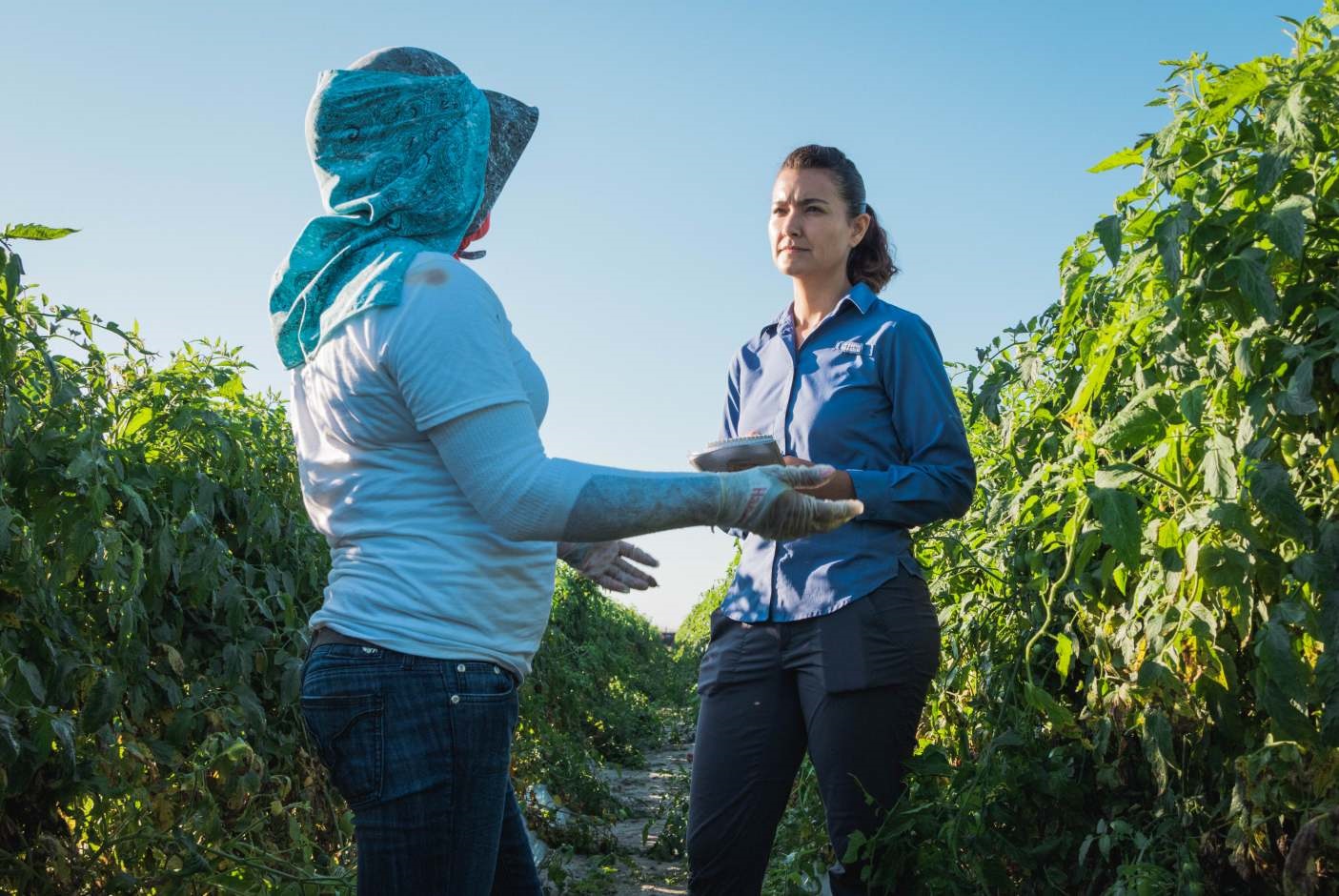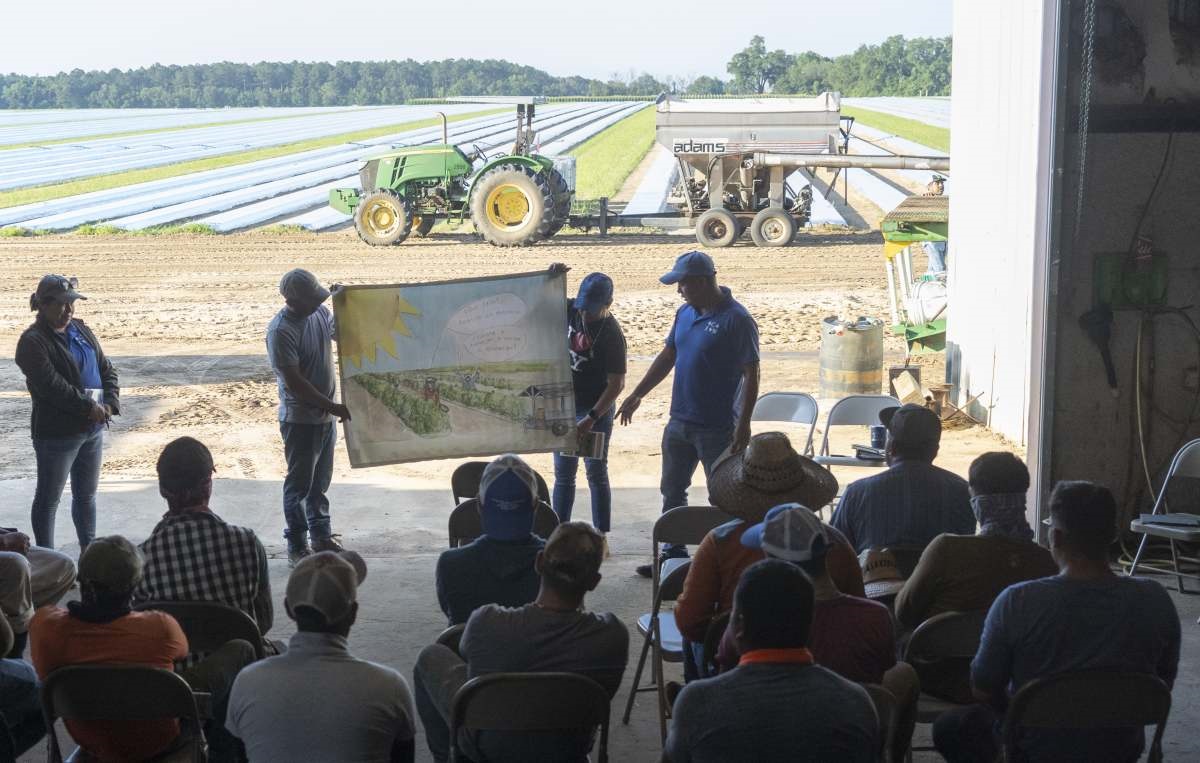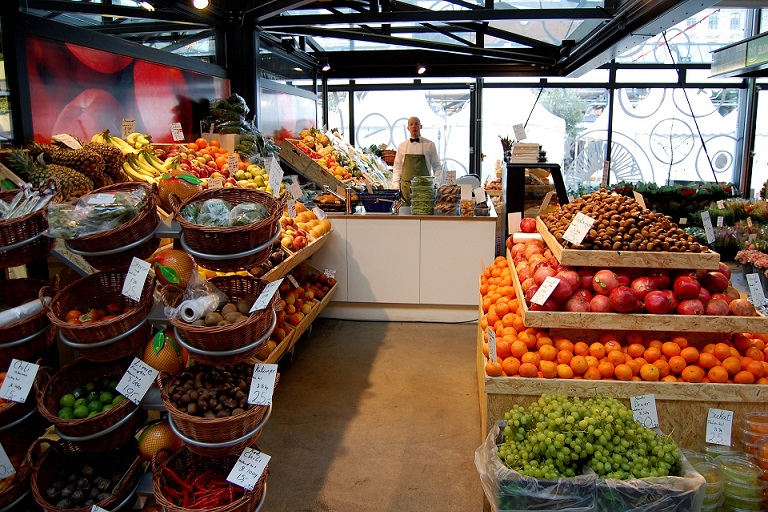When it comes to improving working conditions in global supply chains, the Worker-driven Social Responsibility (WSR) model has seen unparalleled success.

Ethical Consumer is pleased to announce that funding has been secured to explore WSR in UK supermarkets’ Spanish supply chains.
In 2023 we published the report Produce of Exploitation, UK Supermarkets and Migrant Labour in Southern Spain. This report documented widespread abuses of farmworkers who pick fruit and vegetables for UK and European supermarkets, enduring routine exploitation including underpayment, abuse from farm managers, and dangerous and unsafe working conditions.One worker, Maria, told us “Lots of people want to speak out, but they are afraid”. Those who speak out do so despite the risk of being harassed, fired, and even deported for having done so.
The report gained international media attention, and brought all UK supermarkets to the table for the first time to discuss the issues with us, including the reports’ findings and recommendations.
Supermarket-led initiatives have proven ineffective
Our report made clear the failures of multi-stakeholder initiatives and voluntary corporate commitments to protect workers’ rights. For decades these have failed to address the issues workers face.
Our research showed that UK supermarkets have many codes of conduct and a range of voluntary commitments and certifications. Yet none of them has substantially improved conditions for workers, and often such superficial remedies prevent the adoption of more effective models.

What were the report’s recommendations?
The report recommended that UK supermarkets publish all supplier names to the farm level in southern Spain, a step which no supermarket has as of yet committed to taking.
But the report’s principal recommendation was the exploration of Worker-driven Social Responsibility (WSR) as a model that has “been successful in addressing insidious rights violations” in other industries where abuses are widespread. It’s a recommendation that only workers can progress, and we’re very pleased to have secured funding with a range of inspiring partners to make this happen. The securing of funding to explore WSR represents a major step forward in implementing this key recommendation of the report.
What is the focus of the new project?
The project will focus on working conditions for farmworkers, including migrant workers, in Spain’s fruit and vegetable industry. Project partners include the Spanish union SAT Almeria, the US-based Coalition of Immokalee Workers (CIW), the Worker-driven Social Responsibility Network, and us (Ethical Consumer Research Association).
“Workers in the Almeria region of Spain produce many of the fruits and vegetables sold in UK supermarkets,” said José García Cuevas of the SAT Almeria union. “Yet they experience wage theft and widespread exploitation. We are looking for ways to address the root causes of the issues we see in the fields every day.”

The funded project will enable SAT and the farmworkers of Almeria to explore of what binding, enforceable WSR programme could look like in their industry given how it has transformed other industries.
It will fund ongoing conversations between the project partners, plus an exchange of workers from the US who created the world’s first WSR programme in Florida to travel to Spain to explore the potential for expansion of the programme in its agricultural sector.
This will be the first exploration of the WSR model in the European Union.
What is the Worker-driven Social Responsibility model?
The WSR model is based on six interconnected principles, bringing together:
- worker-driven codes of conduct
- legally binding agreements between brands, including grocers, at the top of supply chains
- worker-driven enforcement
- worker education
- a 24/7 complaint support line and
- comprehensive independent monitoring results in a mechanism that is trusted by workers – and aligned with the UN Guiding Principles for Business and Human Rights.
Together, these mechanisms underpin programmes that are gaining global recognition as a powerful paradigm for protecting workers’ fundamental human rights in corporate supply chains.

The first WSR model was the Fair Food Program, created by the Coalition of Immokalee Workers and it now protects tens of thousands of farmworkers across the US, Chile, and South Africa.
The impact of WSR programmes
“Florida’s fields were once dubbed ground zero for modern slavery by federal prosecutors,” said Lucas Benitez of the CIW. “But through the Fair Food Program, we are ushering in a new era of human rights, and have virtually eradicated those abuses on participating farms, transforming those same fields into what one labor expert called ‘the best workplace-monitoring program I’ve seen in the US’.” “As workers ourselves – the men and women who built this new model and experienced this remarkable change – we are excited to continue the dialogue with workers around the globe about how they can transform their industries in similar ways through implementing WSR programs.”
“When worker organisations lead the creation, design and implementation of solutions, the results are truly transformative,” said Rafaela Rodriguez of the Worker-driven Social Responsibility Network.
“Our members have developed programs that are protecting more than three million working people globally. I’m excited that we have the opportunity to facilitate crucial exchange with the workers in Spain’s produce industry.”
You can read about another WSR programme which exists in the Levi’s supply chain in our ethical shopping guide to jeans.

Where is the funding coming from?
The funding for the exploration comes from the Healthy Food Healthy Planet initiative, whose mission is “to steer collective efforts towards achieving systemic change in food systems in Europe.”
Funding will also go to Focus on Labour Exploitation (FLEX), a UK-based organisation, to support a pilot of the WSR model in the fishing industry. This fishing programme (dubbed the Fair Fish Programme) includes some of the same industry partners who would be involved in the Spanish expansion of the WSR model.
Who are the partners?
Sindicato Andaluz de Trabajadores (SAT) Almería combats labour exploitation in Almería. Its main objectives are social justice, gender equality and well-being of each human and worker. SAT and Ethical Consumer have collaborated to draw attention to exploitation in UK and European supermarkets’ Spanish supply chains since 2019.
The Coalition of Immokalee Workers (CIW) is a worker-based human rights organisation founded in Immokalee, Florida, and committed to improving working conditions through enforceable human rights protections within supply chains. Internationally recognized for its achievements in the field of corporate accountability — with a particular focus on the fight against forced labour and gender-based violence at work — the CIW is built on a foundation of farmworker community organising reinforced by a national consumer network. The CIW is credited with pioneering the Worker-driven Social Responsibility (WSR) model.

Worker-driven Social Responsibility Network (WSRN) builds understanding of the Worker-driven Social Responsibility (WSR) model among a wide range of relevant actors, provides support and coordination for worker-led efforts to replicate the model, and shifts the paradigm to establish the model as the baseline for workers’ rights programmes within global supply chains.
Ethical Consumer Research Association is an independent, not-for-profit co-operative, founded in 1989 and based in Manchester UK. It is the hub of the ethical consumer movement, helping consumers to shop ethically, campaigners to challenge corporate power and businesses to improve their supply chains. Its mission is to make global businesses more sustainable through consumer pressure. Alongside its website and publication of a bimonthly magazine, Ethical Consumer provides consultancy services to a range of organisations and businesses such as Stop Funding Hate, Amnesty and Co-op Bank.
*Article originally published on Ethical Consumer. The Prisma is collaborating with Ethical Consumer to translate and republish a series of articles, which focus on workers’ rights issues in the agricultural sector in southern Spain.
(Photos: Ethical Consumer and Pixabay)












.jpg)












